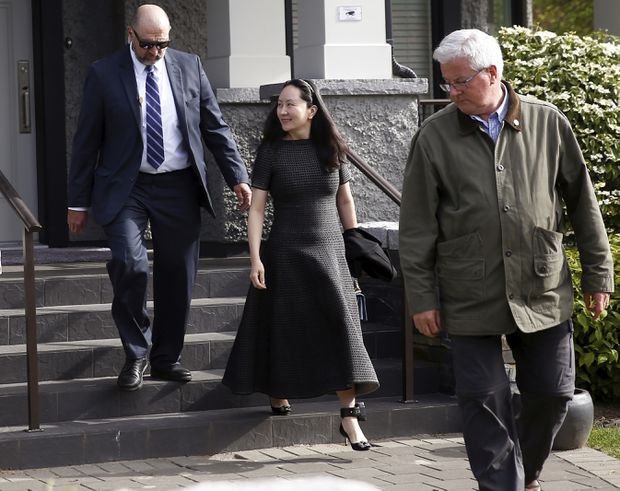Huawei Seeks UK Court Order For HSBC Documents To Clear CFO

Chinese networking giant Huawei launches court action against HSBC in an effort to clear name of its chief financial officer
The protracted Canadian extradition court case of Huawei’s CFO Meng Wanzhou to the US, took a fresh twist this week with legal action launched in the United Kingdom.
Huawei has taken UK-based bank HSBC to court in London, in an effort to obtain documentation to help Wanzhou fight her extradition to the United States, where she faces sanction busting and bank fraud charges.
Wanzhou, 48, was arrested in December 2018 at Vancouver international airport on a warrant from the US, where she is facing charges of bank fraud for allegedly misleading HSBC in a meeting in 2013, about Huawei’s business dealings in Iran and potentially causing the bank to break US sanctions.

HSBC books
Wanzhou has been fighting the extradition for months in Canada, but now the BBC has reported that Huawei is taking HSBC to court in the UK.
Huawei is seeking to gain access to HSBC documents that could help it undermine the US case for her extradition.
The court hearing will take place in London on Friday, after Huawei lawyers reportedly made an application to the UK high court under the Bankers Book Evidence Act to access relevant information kept in HSBC’s books.
Under this Act, they are seeking a court order to gain access to HSBC documentation.
Essentially, Huawei is seeking to force HSBC to hand over documents about the meeting between Wanzhou and HSBC on 22 August 2013, which is central to the US claims.
According to the BBC, the Chinese firm is understood to be seeking evidence about what HSBC did or did not know about Huawei and Skycom’s relationship in Iran and how high up the bank knowledge of the meeting went.
“This application for disclosure in the UK is without merit,” a spokesperson for HSBC told the BBC.
“HSBC is not a party to the underlying criminal case in the US or the extradition proceeding in Canada,” said the bank. “It would be inappropriate to comment further on an ongoing legal matter.”
US charges
Essentially, the United States accuses both Wanzhou and Huawei of conspiring to defraud HSBC and other banks by misrepresenting Huawei’s relationship with Skycom Tech Co Ltd, an alleged front company that operated in Iran.
Huawei has always said that Skycom was a local business partner in Iran, but the US believes it was an unofficial subsidiary used to conceal Huawei’s business in Iran.
Reuters has previously alleged it has proof of the “deep links” between Skycom and Wanzhou.
Reuters alleged last year that Huawei’s internal documents show how the Chinese tech titan effectively controlled Skycom.
“The documents, reported here for the first time, are part of a trove of internal Huawei and Skycom Iran-related business records – including memos, letters and contractual agreements – that Reuters has reviewed,” the news agency said back in June 2020.
It pointed to one document that described how Huawei allegedly scrambled in early 2013 to try to “separate” itself from Skycom out of concern over trade sanctions on Tehran.
Reuters reported that this, plus other documents, allegedly show that Huawei took a series of actions in its business dealings with the country, which at the time was subject to United Nations sanctions.
Its actions allegedly include changing the managers of Skycom, shutting down Skycom’s Tehran office, and forming another business in Iran to secure Skycom contracts worth tens of millions of dollars.
Skycom was registered in Hong Kong and was dissolved in 2017, is also a defendant in the US charges.
At one point, Huawei was a shareholder in Skycom, but according to corporate filings, sold its stake more than a decade ago.
Death threats
Last month the security team for Meng Wanzhou, who has spent the best part of two years under house arrest in Vancouver, revealed the CFO has received death threats.
Wanzhou reportedly received “five or six” threatening letters at her residence in June and July 2020.
Indeed, one of the death threats included bullets in the mail.
The Vancouver police department is involved in examining the threats.
Wanzhou meanwhile is expected to appear in court in Canada on 1 March for the latest stage of her extradition hearings, which are scheduled to finish in May.
That said, the potential for appeals mean the case could drag on for years.